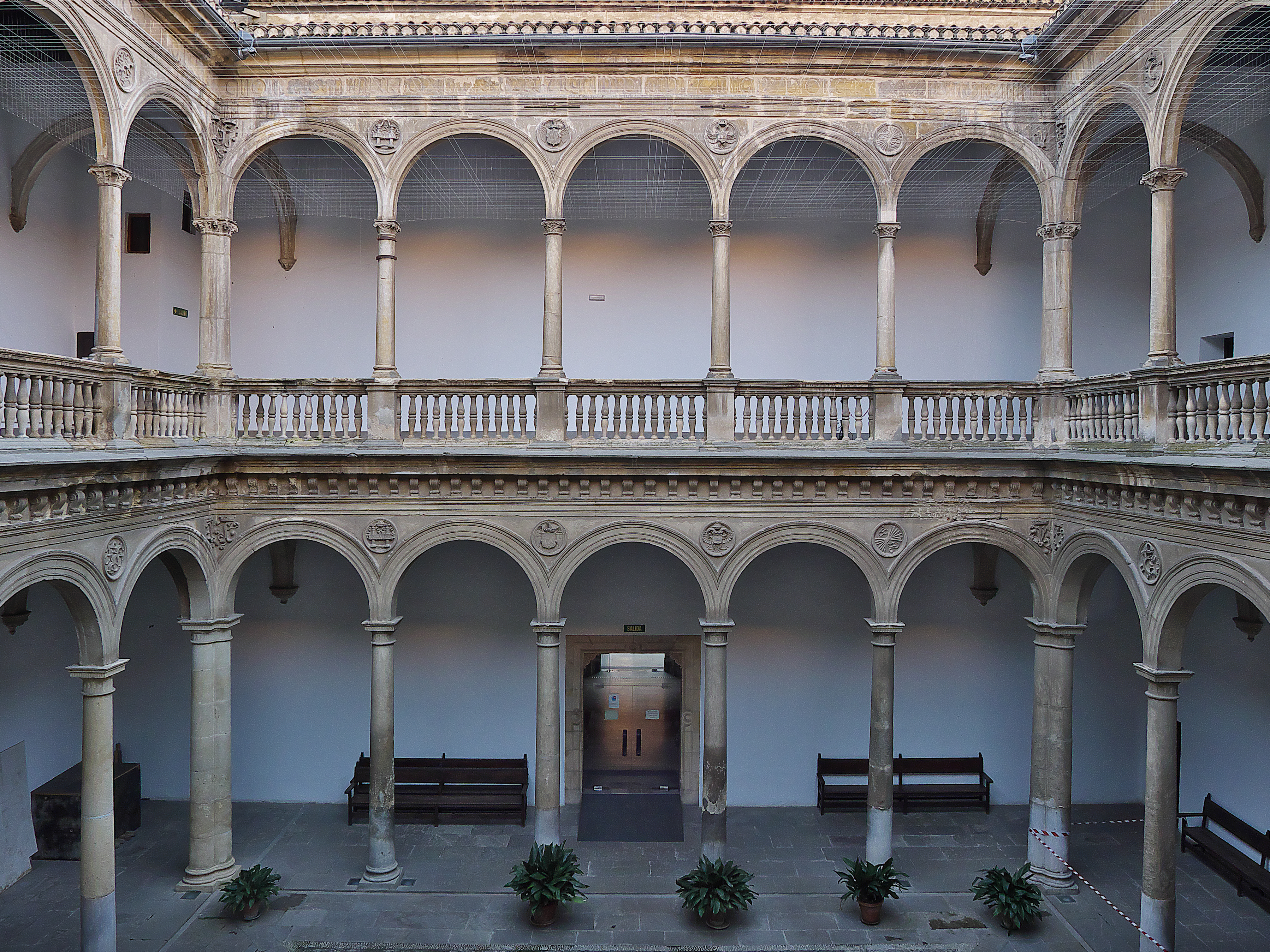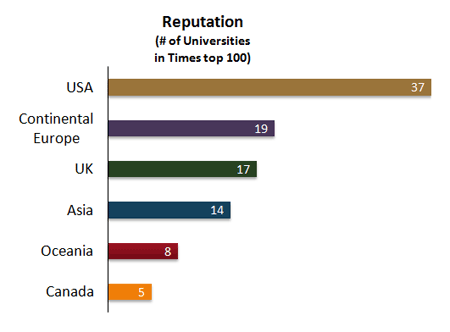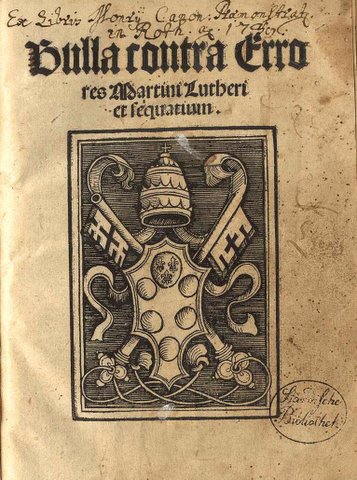|
University Of Granada
The University of Granada (, UGR) is a public university located in the city of Granada, Spain, and founded in 1531 by Emperor Charles V. With more than 60,000 students, it is the fourth largest university in Spain. Apart from the city of Granada, UGR also has campuses in Ceuta and Melilla. The university's Center for Modern Languages (CLM) receives over 10,000 international students each year. In 2014, UGR was voted the best Spanish university by international students. Outstanding in varied fields from Classics to Modern Languages and Computer Science, it has been recognised as the second best university in Spain and as one of the most important among European ancient universities. History In 1526 a college was founded in Granada by Holy Roman Emperor Charles V for the teaching of logic, philosophy, theology and canon law. On 14 July 1531, the establishment of a '' studium generale'' with the faculties of theology, arts and canon law was granted by a papal bull by Cleme ... [...More Info...] [...Related Items...] OR: [Wikipedia] [Google] [Baidu] |
Public University
A public university, state university, or public college is a university or college that is State ownership, owned by the state or receives significant funding from a government. Whether a national university is considered public varies from one country (or region) to another, largely depending on the specific education landscape. In contrast a private university is usually owned and operated by a private corporation (not-for-profit or for profit). Both types are often regulated, but to varying degrees, by the government. Africa Algeria In Algeria, public universities are a key part of the education system, and education is considered a right for all citizens. Access to these universities requires passing the Baccalaureate (Bac) exam, with each institution setting its own grade requirements (out of 20) for different majors and programs. Notable public universities include the Algiers 1 University, University of Algiers, Oran 1 University, University of Oran, and Constantin ... [...More Info...] [...Related Items...] OR: [Wikipedia] [Google] [Baidu] |
Canon Law
Canon law (from , , a 'straight measuring rod, ruler') is a set of ordinances and regulations made by ecclesiastical jurisdiction, ecclesiastical authority (church leadership) for the government of a Christian organization or church and its members. Canon law includes the internal ecclesiastical law, or operational policy, governing the Catholic Church (both the Latin Church and the Eastern Catholic Churches), the Eastern Orthodox Church, Eastern Orthodox and Oriental Orthodoxy, Oriental Orthodox churches, and the individual national churches within the Anglican Communion. The way that such church law is legislative power, legislated, interpreted and at times court, adjudicated varies widely among these four bodies of churches. In all three traditions, a canon (canon law), canon was originally a rule adopted by a church council; these canons formed the foundation of canon law. Etymology Greek language, Greek / , Arabic language, Arabic / , Hebrew language, Hebrew / , 'straigh ... [...More Info...] [...Related Items...] OR: [Wikipedia] [Google] [Baidu] |
THE World University Rankings
The ''Times Higher Education World University Rankings'', often referred to as the THE Rankings, is the annual publication of university rankings by the ''Times Higher Education'' magazine. The publisher had collaborated with Quacquarelli Symonds (QS) to publish the joint '' THE-QS World University Rankings'' from 2004 to 2009 before it turned to Thomson Reuters for a new ranking system from 2010 to 2013. In 2014, the magazine signed an agreement with Elsevier to provide it with the data used in compiling its annual rankings. The publication includes global rankings of universities, including by subject and reputation. It also has begun publishing three regional tables for universities in Asia, Latin America, and BRICS and emerging economies, which are ranked with separate criteria and weightings. The THE Rankings is often considered one of the most widely observed university rankings together with the ''Academic Ranking of World Universities'' and the ''QS World University Ran ... [...More Info...] [...Related Items...] OR: [Wikipedia] [Google] [Baidu] |
Shanghai Ranking
The ''Academic Ranking of World Universities'' (''ARWU''), also known as the Shanghai Ranking, is one of the annual publications of world university rankings. The league table was originally compiled and issued by Shanghai Jiao Tong University in 2003, making it the first global university ranking with multifarious indicators. Since 2009, ARWU has been published and copyrighted annually by Shanghai Ranking Consultancy, an organization focusing on higher education that is not legally subordinated to any universities or government agencies. In 2011, a board of international advisory consisting of scholars and policy researchers was established to provide suggestions. The publication currently includes global league tables for institutions as a whole and for a selection of individual subjects, alongside independent regional ''Greater China Ranking'' and ''Macedonian HEIs Ranking''. ARWU is regarded as one of the three most influential and widely observed university rankings, alon ... [...More Info...] [...Related Items...] OR: [Wikipedia] [Google] [Baidu] |
Spanish National Research Council
The Spanish National Research Council (, CSIC) is the largest public institution dedicated to research in Spain and the third largest in Europe. Its main objective is to develop and promote research that will help bring about scientific and technological progress, and it is prepared to collaborate with Spanish and foreign entities in order to achieve this aim. CSIC plays an important role in scientific and technological policy, since it encompasses an area that takes in everything from basic research to the transfer of knowledge to the productive sector. Its research is driven by its centres and institutes, which are spread across all the autonomous regions. CSIC has 6% of all the staff dedicated to research and development in Spain, and they generate approximately 20% of all scientific production in the country. It also manages a range of important facilities; the most complete and extensive network of specialist libraries, and also has joint research units. Significant latest r ... [...More Info...] [...Related Items...] OR: [Wikipedia] [Google] [Baidu] |
Bien De Interés Cultural
(, , , ) is a category of the heritage register in Spain. The term is also used in Colombia and other Spanish-speaking countries. The term literally means a "good of cultural interest" ("goods" in the economic sense). It includes not only material heritage ( cultural property), like monuments or movable works of art, but also intangible cultural heritage, such as the Silbo Gomero language. Some ''bienes'' enjoy international protection as World Heritage Sites or Masterpieces of the Oral and Intangible Heritage of Humanity. History In Spain, the ''Bien de Interés Cultural'' category dates from 1985 when it replaced the former heritage category of '' Monumento nacional ''(national monument) to extend protection to a wider range of cultural property. The category has been translated as "Cultural Interest Asset." ''Monumentos'' are now identified as one of the sub-categories of ''Bien de Interés Cultural.'' Sub-categories The movable heritage designated as ''Bienes de Int ... [...More Info...] [...Related Items...] OR: [Wikipedia] [Google] [Baidu] |
Royal Hospital Of Granada
Royal may refer to: People * Royal (name), a list of people with either the surname or given name * A member of a royal family or royalty Places United States * Royal, Arkansas, an unincorporated community * Royal, Illinois, a village * Royal, Iowa, a city * Royal, Missouri, an unincorporated community * Royal, Nebraska, a village * Royal, Franklin County, North Carolina, an unincorporated area * Royal, Utah, a ghost town * Royal, West Virginia, an unincorporated community * Royal Gorge, on the Arkansas River in Colorado * Royal Township (other) Elsewhere * Mount Royal, a hill in Montreal, Canada * Royal Canal, Dublin, Ireland * Royal National Park, New South Wales, Australia Arts, entertainment, and media * ''Royal'' (Jesse Royal album), 2021 * Royal (Ayo album), 2020 * ''The Royal'', a British medical drama television series * '' The Royal Magazine'', a monthly British literary magazine published between 1898 and 1939 * '' The Raja Saab'', working title ''Royal' ... [...More Info...] [...Related Items...] OR: [Wikipedia] [Google] [Baidu] |
Rector (academia)
A rector (Latin language, Latin for 'ruler') is a senior official in an educational institution, and can refer to an official in either a university or a secondary school. Outside the English-speaking world, the rector is often the most senior official in a university, while in the United States, the equivalent is often referred to as the President (education), president, and in the United Kingdom and Commonwealth of Nations, the equivalent is the Vice-chancellor (education), vice-chancellor. The term and office of a rector can be referred to as a rectorate. The title is used widely in universities in EuropeEuropean nations where the word ''rector'' or a cognate thereof (''rektor'', ''recteur'', etc.) is used in referring to university administrators include Albania, Austria, Benelux, the Benelux, Bosnia and Herzegovina, Bulgaria, Croatia, Cyprus, Czech Republic, Denmark, Estonia, Finland, Germany, Greece, Hungary, Iceland, Italy, Latvia, Malta, Moldova, North Macedonia, Poland, ... [...More Info...] [...Related Items...] OR: [Wikipedia] [Google] [Baidu] |
Coat Of Arms Of Charles V, Holy Roman Emperor
Charles V, Holy Roman Emperorknown as Charles I in Spain and Austria, Charles II in Burgundy and Sicily, Charles III in Flanders, Charles IV in Naples was the heir of several of Europe's leading royal houses. In 1506, he inherited the Burgundian Netherlands, which came from his paternal grandmother, Mary of Burgundy. In 1516, Charles became the List of Spanish monarchs, king of Spain, inheriting the kingdoms first united by his maternal grandparents, Isabella I of Castile and Ferdinand II of Aragon (the Catholic Monarchs). Finally, on the death of his paternal grandfather in 1519, Maximilian I, Holy Roman Emperor, he inherited the House of Habsburg, Habsburg lands in central Europe and was elected Holy Roman Emperor. Blazon Shield His "Greater Coat of Arms", the most expansive and formal representation of the lands and titles he inherited, is blazoned as follows (here placed in paragraphs for clarity): *Quartering (heraldry), Quarterly: **I and IV: ***Grand-quarterly i and iv ... [...More Info...] [...Related Items...] OR: [Wikipedia] [Google] [Baidu] |
Universities In Early Modern Europe (1500–1800)
A university () is an institution of tertiary education and research which awards academic degrees in several academic disciplines. ''University'' is derived from the Latin phrase , which roughly means "community of teachers and scholars". Universities typically offer both undergraduate and postgraduate programs. The first universities in Europe were established by Catholic monks. The University of Bologna (), Italy, which was founded in 1088, is the first university in the sense of: *being a high degree-awarding institute. *using the word (which was coined at its foundation). *having independence from the ecclesiastic schools and issuing secular as well as non-secular degrees (with teaching conducted by both clergy and non-clergy): grammar, rhetoric, logic, theology, canon law and notarial law.Hunt Janin: "The university in medieval life, 1179–1499", McFarland, 2008, , p. 55f.de Ridder-Symoens, Hilde''A History of the University in Europe: Volume 1, Universities in the Middl ... [...More Info...] [...Related Items...] OR: [Wikipedia] [Google] [Baidu] |
Pope Clement VII
Pope Clement VII (; ; born Giulio di Giuliano de' Medici; 26 May 1478 – 25 September 1534) was head of the Catholic Church and ruler of the Papal States from 19 November 1523 to his death on 25 September 1534. Deemed "the most unfortunate of the popes", Clement VII's reign was marked by a rapid succession of political, military, and religious struggles—many long in the making—which had far-reaching consequences for Christianity and world politics. Elected in 1523 at the end of the Italian Renaissance, Clement came to the papacy with a high reputation as a statesman. He had served with distinction as chief advisor to Pope Leo X (1513–1521, his cousin), Pope Adrian VI (1522–1523), and commendably as gran maestro of Florence (1519–1523). Assuming leadership at a time of crisis, with the Protestant Reformation spreading, the Church nearing bankruptcy, and large foreign armies invading Italy, Clement initially tried to unite Christendom by making peace among the m ... [...More Info...] [...Related Items...] OR: [Wikipedia] [Google] [Baidu] |
Papal Bull
A papal bull is a type of public decree, letters patent, or charter issued by the pope of the Catholic Church. It is named after the leaden Seal (emblem), seal (''bulla (seal), bulla'') traditionally appended to authenticate it. History Papal bulls have been in use at least since the 6th century, but the phrase was not used until around the end of the 13th century, and then only internally for unofficial administrative purposes. However, it had become official by the 15th century, when one of the offices of the Apostolic Chancery was named the "register of bulls" ("''registrum bullarum''"). By the accession of Pope Leo IX in 1048, a clear distinction developed between two classes of bulls of greater and less solemnity. The majority of the "great bulls" now in existence are in the nature of confirmations of property or charters of protection accorded to monasteries and religious institutions. In an era when there was much fabrication of such documents, those who procured bulls ... [...More Info...] [...Related Items...] OR: [Wikipedia] [Google] [Baidu] |








